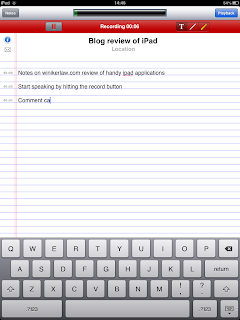Christian Hoel, Asst Public Defender Laura Jackson, and I presented a CLE today that was hosted by the Mecklenburg County Public Defender's Office and the
Federal Defenders of Western North Carolina, Inc. on the issues of the Interstate Agreement on Detainers, other detainers, fugitives and writs. The Interstate Agreement on Detainers (IADA) is codified in
North Carolina General Statute 15A-761. The corresponding Federal Statute can be found in
18 USC App 2.
As described in Article 1, the IADA was created to set up uniform rules for the transfer of prisoners between states who face charges in multiple jurisdictions:
The party States find that charges outstanding against a prisoner, detainers based on untried indictments, informations, or complaints and difficulties in securing speedy trial of persons already incarcerated in other jurisdictions, produce uncertainties which obstruct programs of prisoner treatment and rehabilitation. Accordingly, it is the policy of the party States and the purpose of this agreement to encourage the expeditious and orderly disposition of such charges and determination of the proper status of any and all detainers based on untried indictments, informations, or complaints.
The IADA contains a section whereby a prisoner can request trial within a 180 period - so long as the procedures in the IADA are strictly followed. (Article III) State can also use the Act to request prisoners from other jurisdictions.
While not strictly an IADA issue (the Act only applies to pending "new" criminal charges - not allegations of probation violation or supervised release violations), a criminal defense attorney should be aware of a 'catch 22' that can arise when a client has both state and federal charges that may be resolved close together. If a defendant is arrested and originally in state custody, then later charged with a federal offense (or SRV allegation) - and prosecuted by federal authorities on a writ - that defendant will be returned to state custody (presumptively with a federal sentence). If an arrangement is worked out for concurrent time to that federal sentence - despite an otherwise valid concurrent sentence - the state will retain the defendant. After serving that state sentence, the defendant would then be transferred to serve the federal sentence. In short, who had primary jurisdiction is an important issue to keep in mind when working out a concurrent sentence across jurisdictions - or a defendant may be required to serve out an unintentional consecutive sentence.
Christian Hoel provided an excellent summary of some successes he has had in Superior Court in properly enforcing the 180 time limit for prosecutions in IADA cases.
Laura Jackson reviewed the requirements for fugitives and the time limit for a Governor's Warrant.
Robert Farb's outline of the State of North Carolina Extradition Manual would be helpful resource for extradition and fugitive questions.
For any questions regarding criminal charges, a law enforcement investigation, United States Attorney grand jury subpoena, federal indictment, computer crimes, white collar criminal (fraud) charges, or any Mecklenburg County state charges, contact the Winiker Law Firm at (704) 750-9212 or info@winikerlaw.com









